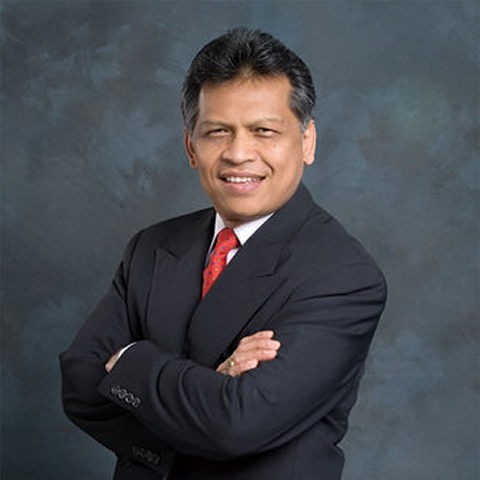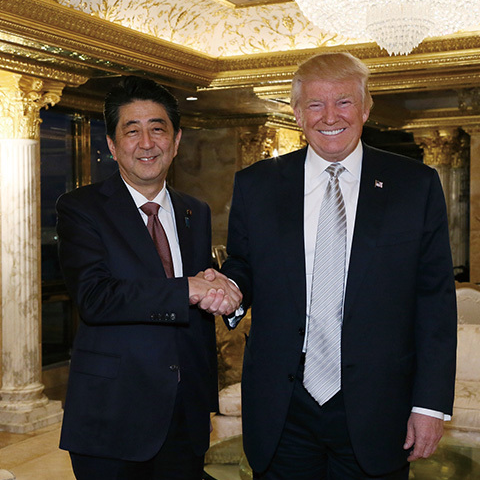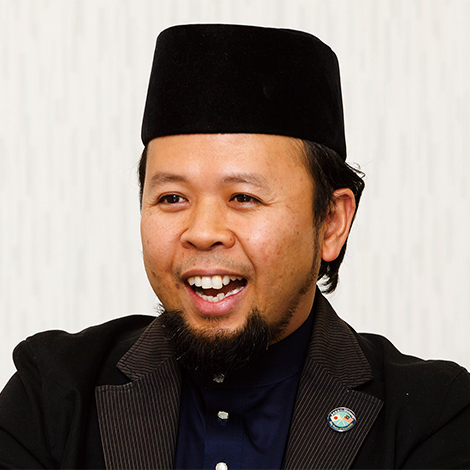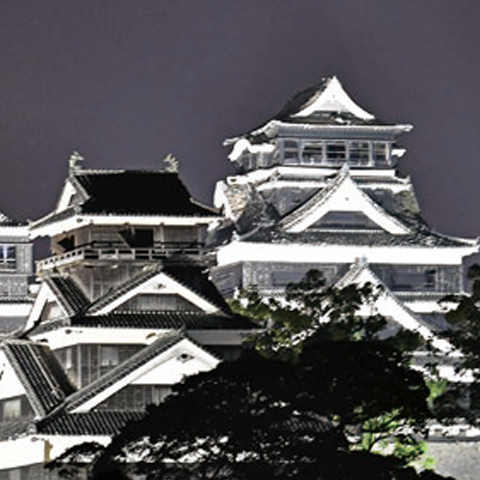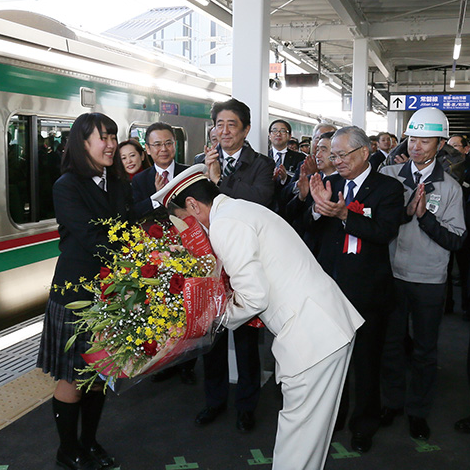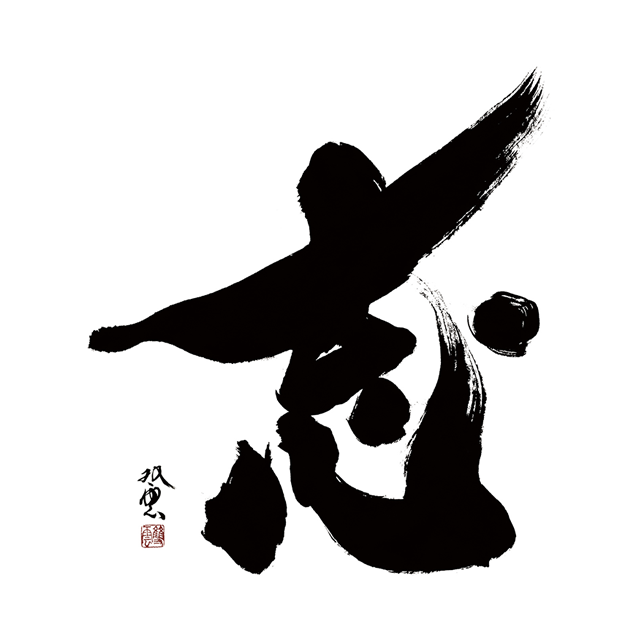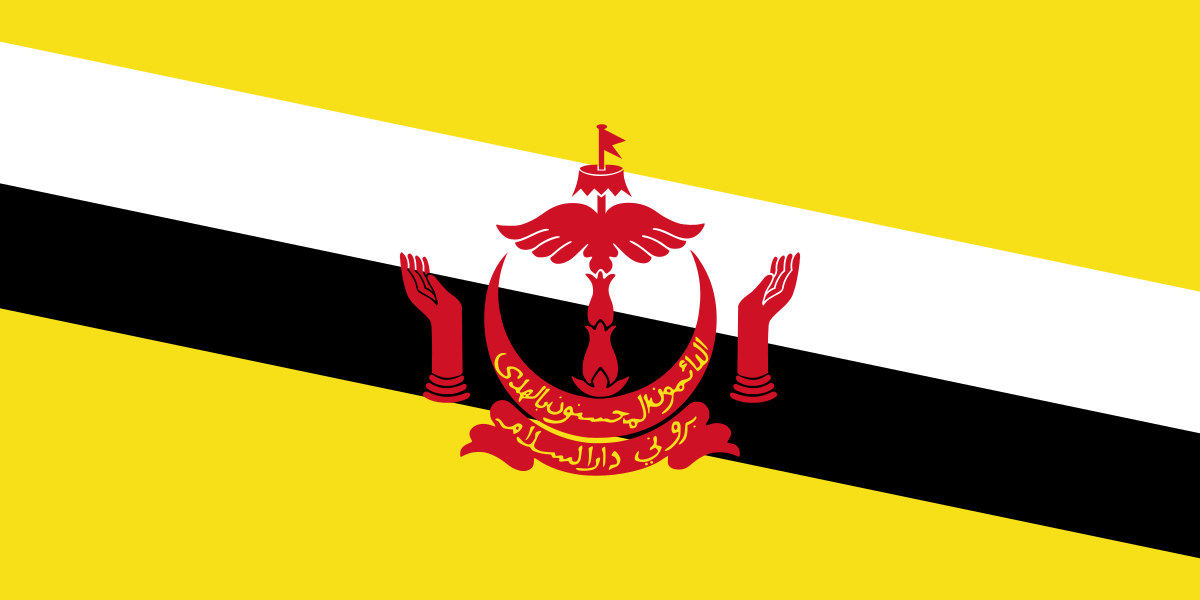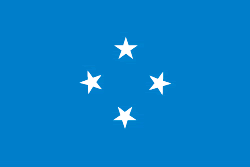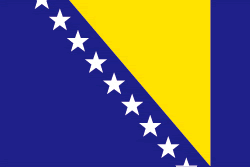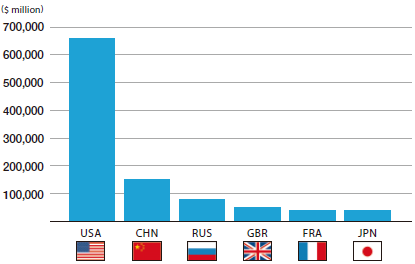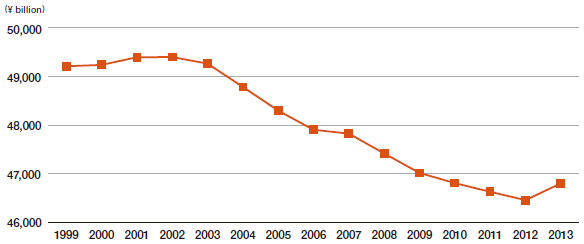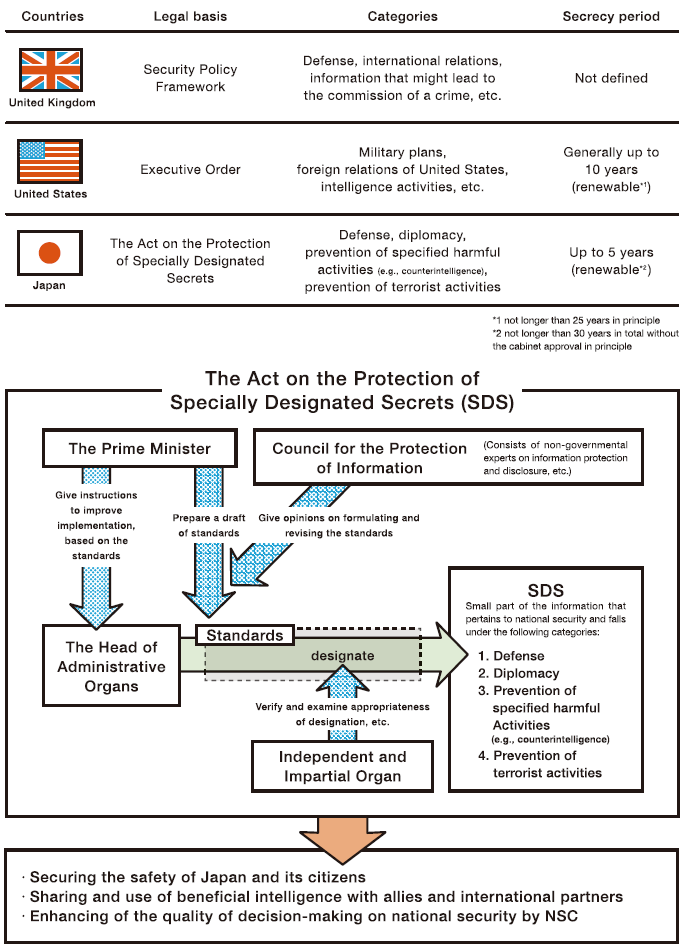Japan Adopts Its First National Security Strategy
With a cabinet decision on December 17, 2013, the government set forth two key documents: Japan’s first National Security Strategy, to set the basic course for diplomatic and defense policy, and a new version of the National Defense Program Guidelines. The security environment surrounding Japan is becoming ever more severe. In addition to weapons of mass destruction and ballistic missiles, Japan faces increasing new threats like cyberattacks, and it has become difficult for a single country to defend its peace and security on its own. Japan cannot protect its day-to-day peace and security unless it actively contributes to regional and global stability and security in cooperation with the international community. On the basis of this view, the government has adopted the concept of “Proactive Contribution to Peace” as the basic principle for Japan’s national security strategy.
As a country surrounded by the sea on all sides, Japan must undertake to maintainand develop an open, stable maritime order. And as an economic power, a country with great economic strength and high technological capability, it intends to contribute to the development of the world economy while securing its own economic growth and prosperity through expansion of the open, rule-based international economic system. Japan will address global issues in cooperation with the United States and other partners in the Asia-Pacific region and elsewhere that share the universal values of freedom, democracy, respect for basic human rights, and the rule of law.
Japan will also strengthen the domestic foundation required for the implementation of these policies. Needless to say, it will not change its ongoing adherence to the policies that are a testament to the path it has taken as a peace-loving nation: maintaining an exclusively defense-oriented posture, not becoming a military power, and observing the Three Non-Nuclear Principles.
National Defense Program Guidelines and Medium Term Defense Program:
Construction of a Dynamic Joint Defense Force
Under the new National Defense Program Guidelines (NDPG), which were revised to strengthen the country’s defense capability, Japan will boost its deterrence and response capabilities by developing defense capabilities adequate both in quantity and quality to underpin various activities in addition to conducting tailored activities swiftly and sustainably based on joint operations by the Ground, Maritime, and Air Self-Defense Forces. For this purpose, Japan will build a Dynamic Joint Defense Force, placing emphasis on developing advanced technological and command, control, communication and intelligence capabilities and achieving readiness, sustainability, resiliency, and connectivity in terms of both tangible and intangible resources while giving consideration to the establishment of broad infrastructure for logistic support. The Medium Term Defense Program, which gives concrete shape to the NDPG, provides for an increase in defense spending, which had been virtually declining, and for steps including the introduction of unmanned aerial vehicles and tilt-rotor aircraft.
As China’s increasingly expanding maritime activities and North Korea’s nuclear and missile program development show, the security environment surrounding Japan has become increasingly severe. In view of this situation, Japan will act firmly to protect the lives and property of its people and the integrity of its territorial land, waters, and airspace with the recently adopted NDPG and Medium Term Defense Program.
Launch of the National Security Council
On December 4, 2013, Japan established a National Security Council (NSC) to serve as the command center for the country’s diplomatic and security policies. In consideration of the increasingly serious security environment that Japan faces, Prime Minister Shinzo Abe created the post of “minister in charge of strengthening national security” when he took office in December 2012. And in February 2013 the government established the Advisory Council on the Establishment of a National Security Council. These moves were a part of urgent efforts by the Abe administration to establish a Japanese NSC.
With the launching of the NSC, Japan has finally joined the ranks of the many countries that have an NSC or similar high-level body. On December 17, 2013, the Japanese NSC approved the National Security Strategy; henceforth, the government will conduct unified management of information relating to diplomacy and national security and make important policy decisions promptly under the leadership of the prime minister. In January 2014, the National Security Secretariat was set up within the Cabinet Secretariat to plan and draft proposals for diplomatic and defense policies and serve as the secretariat for the NSC. Shotaro Yachi, a former vice-minister for foreign affairs, was named as the first Secretary General of the Secretariat and National Security Advisor to the Cabinet.
The core of the NSC is the “Four-Minister Meeting,” which consists of the prime minister, chief cabinet secretary, foreign minister, and defense minister. This group will convene expeditiously and hold regular meetings to formulate the basic orientation for national security, including medium- to long-term national security strategy. In the event of emergency situations involving the lives and property of Japanese people, the NSC will hold a Ministerial Emergency Meeting to discuss measures required for a prompt and appropriate response; such meetings will include additional ministers of state responsible for relevant matters. And when serious matters of national defense are at stake, civilian control will be ensured by the convening of a Nine-Minister Meeting, which will include the minister for internal affairs and communications, minister of land, infrastructure, transport, and tourism, and other ministers, to decide which actions to take.
The National ecurity Secretariat has started with a complement of 67 staff members, including the chief, two deputies, and three councilors. It has been organized into six sections to handle planning, policy drafting, and overall coordination concerning particular regions and various national security policy topics.
The NSC will overcome the sectionalism among ministries and agencies to conduct policy making in a strategic and flexible manner. In order to accomplish this, it will be essential for the NSC to gather and analyze information. It is legally stipulated that ministries and agencies are required to supply information to the NSC for this purpose.
Defense Spending by Major Countries(FY 2011)
This graph shows that the defense expenditures of major countries in Purchasing Power Parity terms. In FY2011, China’s defense spending was approx. 3.2 times as large as Japan’s; in FY2014 China announced its defense budget increased by 12.2%, and has grown approx. 40-fold over the past 26 years. Source: Defense of Japan 2013 and other government documents.
Japan’s Defense-Related Spending
In FY2013, defense-related expenditures, which had been declining continuously since FY2003, were increased in real terms for the first time in 11 years, in order to reinforce preparedness aimed at protecting the lives and property of the populace and the integrity of its territorial land, waters, sea, and airspace, in light of the increasingly harsh security environment. Source: Defense of Japan 2013
A Secrecy-Protection Framework Equivalent to Those of Western Countries
In order to make appropriate decisions on the information that has been gathered, it is extremely important in particular to exchange information with other countries, and for this purpose it is essential to build mutual trust with relevant foreign government institutions by establishing a system for the protection of secrets concerning national security. This is the purpose of the Act on the Protection of Specially Designated Secrets that was passed in the Diet on December 6, 2013, which provides for the protection of secret information concerning national security in fields like defense and foreign affairs.
In many Western countries, laws on the protection of state secrets have long been in effect, while freedom of information acts are relatively recent. In Japan, in contrast, an information disclosure law (Act on Access to Information Held by Administrative Organs) has been in effect for some time, while up to now, the only legal provision on protection of national security secrets not related to defense has been the general duty of confidentiality imposed on civil servants under the National Public Service Act, with no general legislation for the protection of information concerning national security. Therefore, Japan has often been ridiculed as a paradise for spies. For this reason, some people said that it was not possible to obtain sufficient confidential information required for national security from Japan’s allies. The new law creates a framework to ensure the prevention of unauthorized disclosure of such information. Thus Japan has finally established a setup of the protection of secrets comparable to those of Western countries.
It is also hoped that the enactment of this legislation will enable the government of Japan to respond swiftly to international terrorism and changes in Japan’s national security environment. If an incident involving international terrorism, such as the hostage crisis in Algeria in January 2013, occurs, this act will enable Japan to exchange highly secret information with other countries involved; Japan should be able to cooperate with other countries more than before in responding to the turbulent global situation.
Outline of the Act on the Protection of Specially Designated Secrets
Under the Act on the Protection of Specially Designated Secrets, cabinet ministers and other heads of administrative organs shall designate information under their jurisdiction as specially designated secrets, but only if it meets the strict conditions defined by the law. Information to be designated as a specially designated secret must be in one of four fields, namely, defense, diplomacy, prevention of specified harmful activities, and prevention of terrorist activities, and within each of these fields the eligible items are set forth specifically in the appended table of the act. In this respect, this act is more detailed than the corresponding act in other countries. The effective period of each specially designated secret is up to 5 years; it can be extended for up to a maximum of 30 years. In order to extend the effective period for more than 30 years, Cabinet approval is required. Even in such cases, the effective period cannot be extended beyond 60 years unless the information comes under one of the seven items, such as encryption or human intelligence sources. Handling of specially designated secrets will be limited to those who have passed the security clearance. Civil servants and others officially charged with handling specially designated secrets who commit the unauthorized disclosure of such secrets are subject to a maximum of 10 years’ imprisonment.
In the course of deliberations on this act in the Diet before it was passed, concerns were raised that the act would interfere with news-gathering activities by extending the scope of what is considered secret information and that information could be classified arbitrarily. However, this will not happen. For one thing, the information to be labeled as specially designated secrets will comprise only a small fraction of what has been considered secret up to now; the scope of secret information will not be expanded, and the information disclosure law will still apply. Also, the act explicitly calls for due consideration of freedom of the press and news gathering that contributes to guaranteeing the right of citizens to know, and it recognizes the validity of legitimate news-gathering activities.
Furthermore, compared to ordinary government secrets, which are not determined by a clearly defined set of procedures under any law, specially designated secrets are limited to those so defined in provisions of the new law, which also includes details regarding the effective period of designation and procedures to extend it. This represents a major advance in transparency.
The law is to be implemented according to the standards based on opinions given by non governmental experts, in the Council for the Protection of Information as described below and an annual report on the law’s implementation, including opinions from these experts, will be submitted to the Diet and made publicly available; moreover, an independent and impartial organ will be established to verify and examine appropriateness of designation,etc. With this framework, improper designation of secrets will be prevented.
Organization of the National Security Council
(Japanese NSC)
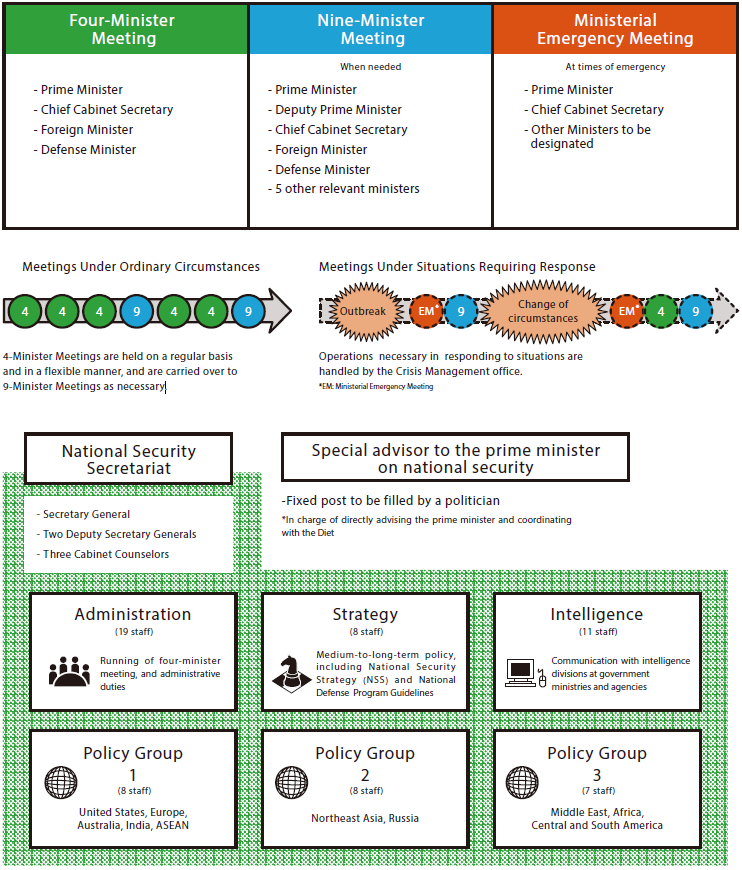
Initiatives to Prepare for Enforcement of the Law
The Act on the Protection of Specially Designated Secrets is expected to come into effect within this year. The government is making thorough preparations in advance so that the new act can be implemented appropriately and effectively and to allay public concern and enhance public confidence in the act.
One of the initiatives that the government has taken in this connection is the establishment of the Council for the Protection of Information. Prime Minister Abe attended the inaugural session of this council on January 17, 2014. The prime minister will hear the opinions of members of the council as it considers the details of the matters subject to designation and the standards for setting effective periods of designation and for conducting the security clearance process.
Next on the Abe administration’s agenda is consideration of the right to collective selfdefense. With this move, along with the establishment of the NSC to provide leadership in national security and diplomacy and the enactment of the Act on the Protection of Specially Designated Secrets to facilitate the exchange of important secret information with allies, the administration aims to create a normal national security framework that will allow Japan to engage in mutual assistance with its allies and to make international contributions as a responsible, independent state.


























